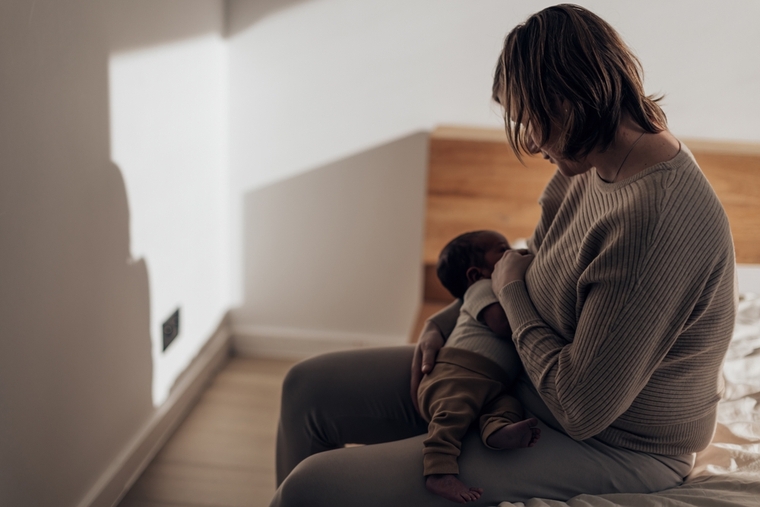Posted By: Amy Tubb
3rd November 2025
3 minute read

Last month, from the House of Commons to the House of Lords, Parliamentarians showed up and spoke out for perinatal mental health.
On Thursday 23 October 2025, Laura Kyrke-Smith MP introduced a 10-Minute Rule Bill to Parliament, the Perinatal Mental Health Assessments Bill, known as "Sophie’s Law".
Named in memory of Sophie, Laura’s close friend who tragically died by suicide after the birth of her third child, Sophie’s Law is a deeply personal and powerful call for change. Sophie’s father was present in Parliament to witness the Bill’s introduction; a poignant reminder of why this work matters so much to families.
Sophie’s Law calls for high-quality perinatal mental health assessments to be a routine part of antenatal care for all women and birthing people in England. It asks for:
While a 10-Minute Rule Bill is primarily a mechanism for raising awareness and building cross-party support, it represents a great step forward in Parliament’s recognition of perinatal mental health as a national priority.
‘Perinatal’ refers to the period around birth, during pregnancy and 1-2 years afterwards. Perinatal mental health conditions can include depression, anxiety, eating disorders, OCD, postpartum psychosis, tokophobia, and PTSD.
Mental health is the most common complication of pregnancy in the UK, affecting as many as 1 in 4 women and birthing people, and 1 in 10 dads and partners.
Despite being five times more common than gestational diabetes and 25 times more common than pre-eclampsia, perinatal mental health is not routinely screened for at maternity appointments. Tragically, suicide remains the leading cause of maternal death between six weeks and one year after birth.
With the right care at the right time, recovery is possible. But access to high-quality, compassionate support remains unequal across the UK. Women and birthing people from the global majority, young parents, and those facing domestic abuse, poverty, or multiple disadvantages continue to experience poorer outcomes.
The Maternal Mental Health Alliance (MMHA) welcomes Sophie’s Law and Laura Kyrke-Smith MP’s commitment to working with the Government to improve perinatal mental health care in the UK. We will continue to advocate for mental health to be given the same priority as physical health during this pivotal and vulnerable time of life.
Meanwhile, in the House of Lords, MMHA Chair Baroness Berger raised an important question during the MBRRACE-UK debate, shining a spotlight on inequality and the urgent need for action on perinatal mental health:
“What can we do to stop it being the case that if you are from a poorer background, you are most likely to take your life during this [perinatal] period?”
Lord Patel and Baroness Gohir added further pressure, asking for answers on the persistent racial disparities in maternal outcomes.
In response, Baroness Merron reaffirmed the Government’s commitment to maternal mental health, stating:
“Maternal mental health is one of the areas that has been identified for urgent action… This Government are committed to closing the Black and Asian maternal mortality gap.”
She also highlighted two key initiatives expected later this year:
The MMHA will continue to influence and engage with these developments to ensure that perinatal mental health remains a core focus of any maternity care reforms.
The MMHA hopes to see Sophie’s Law progress through its next stages, but our work does not stop here. We will keep fighting until every mother and birthing person receives high-quality, compassionate care regardless of background, postcode, or personal circumstances.
On Tuesday 4 November, as part of our Esmée Fairbairn Foundation-funded project, the MMHA will return to the Lords for a special parliamentary event with The Motherhood Group and Centre for Mental Health. Joined by Baroness Merron and leaders in Black maternal health, we will discuss the specific mental health needs of Black mothers in the UK and how we ensure equitable care.